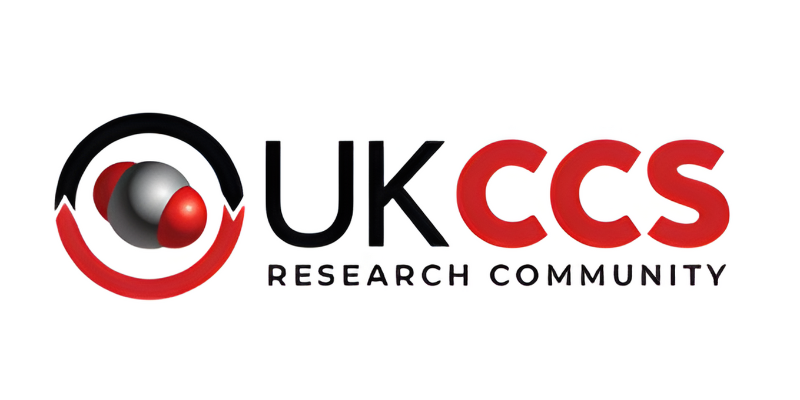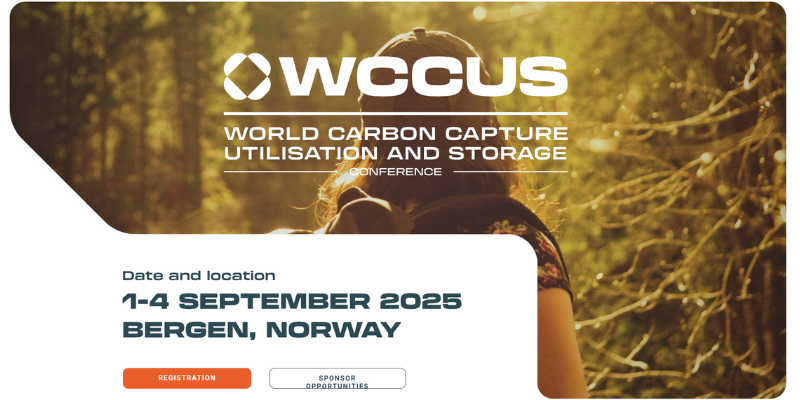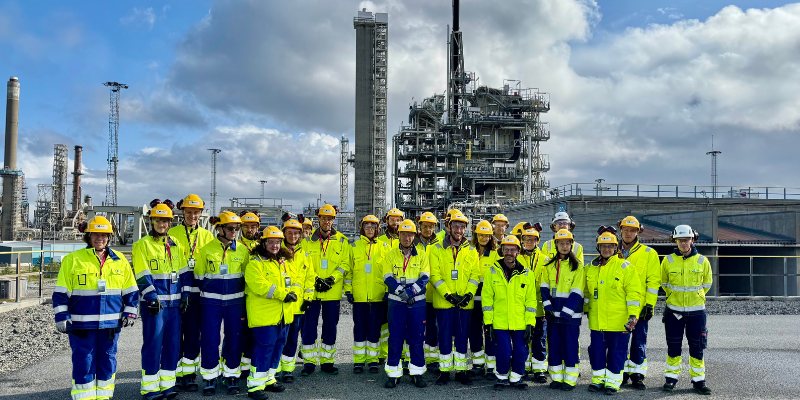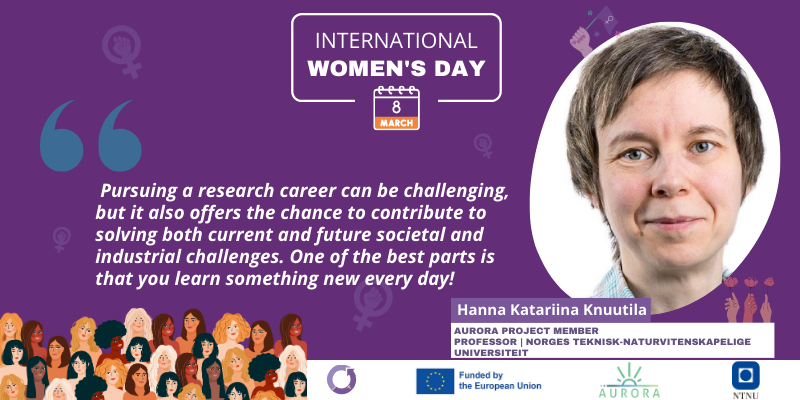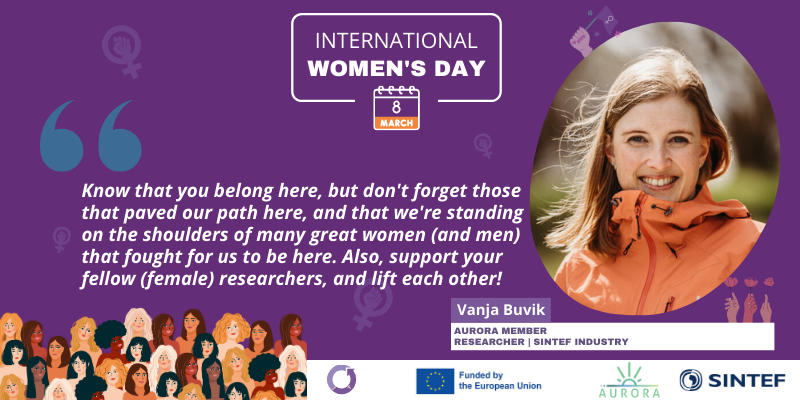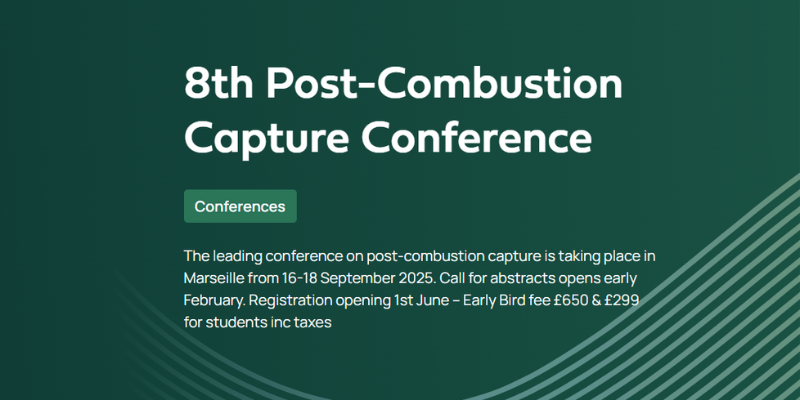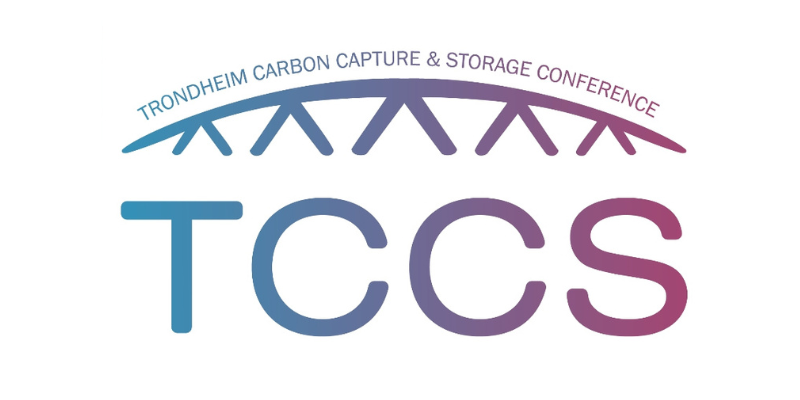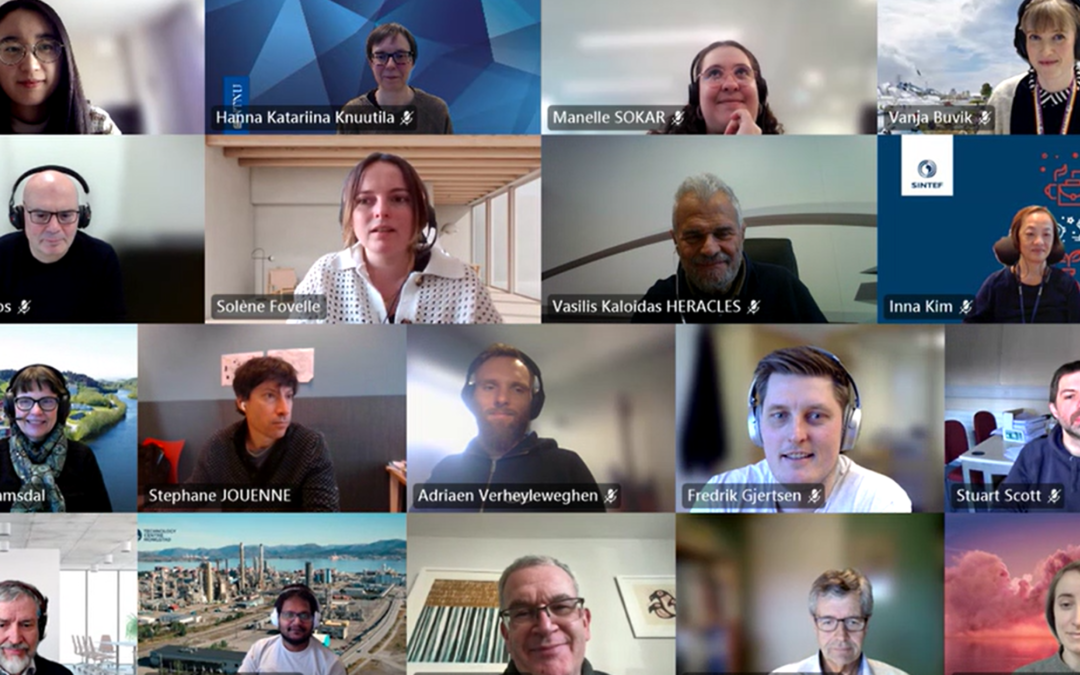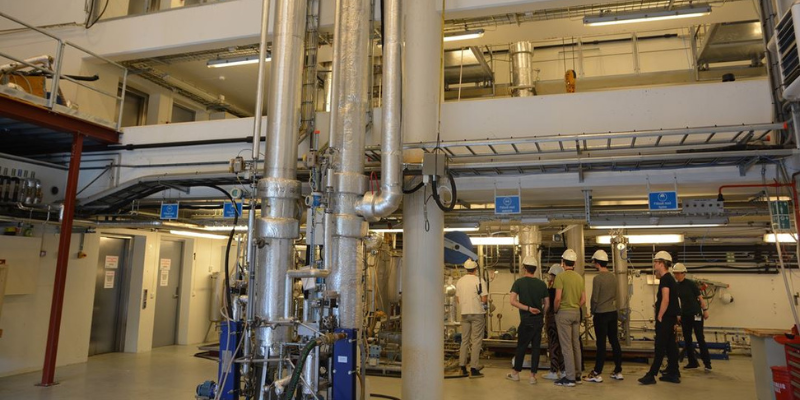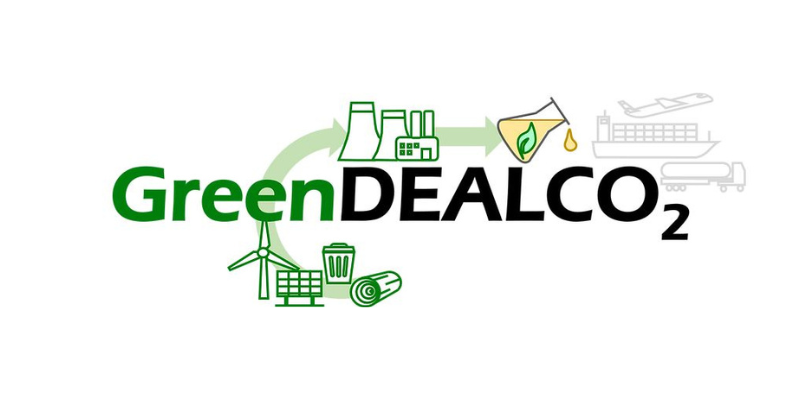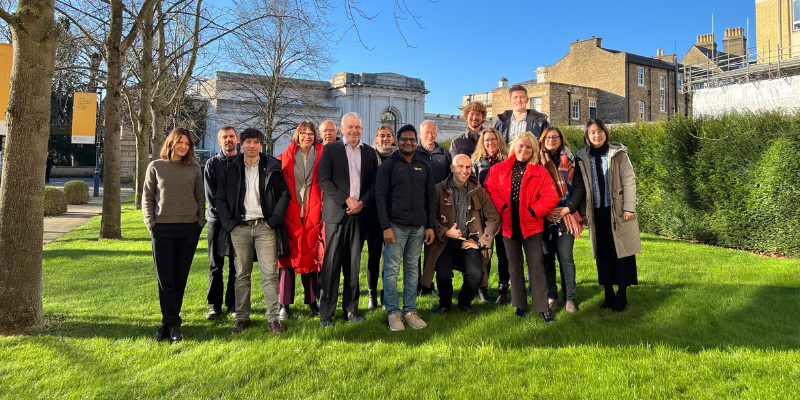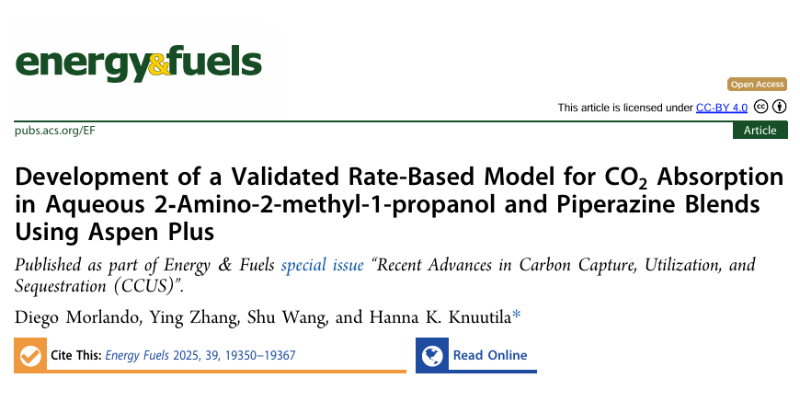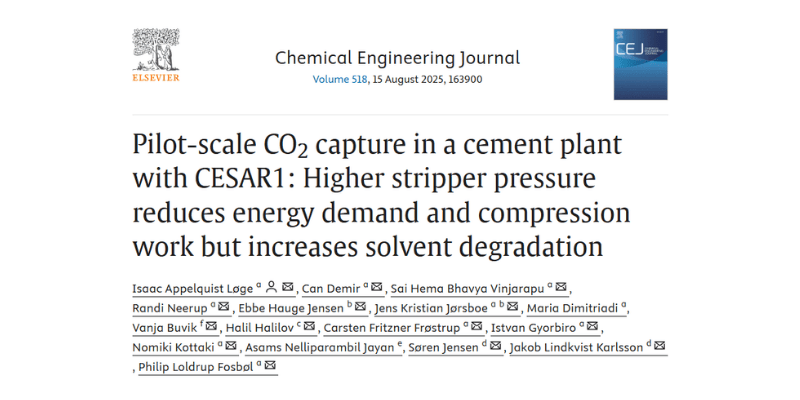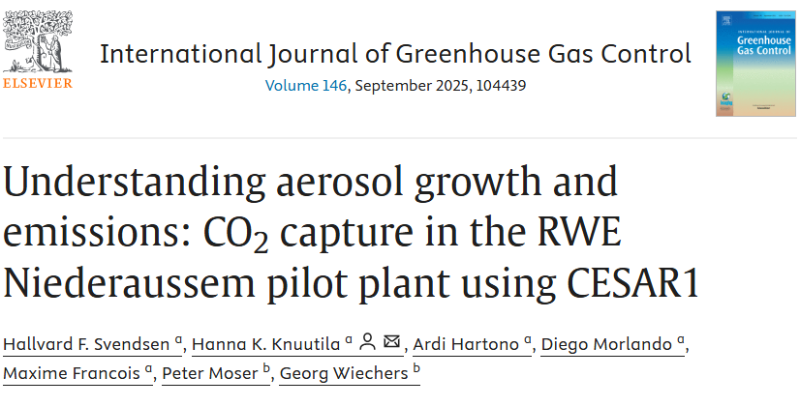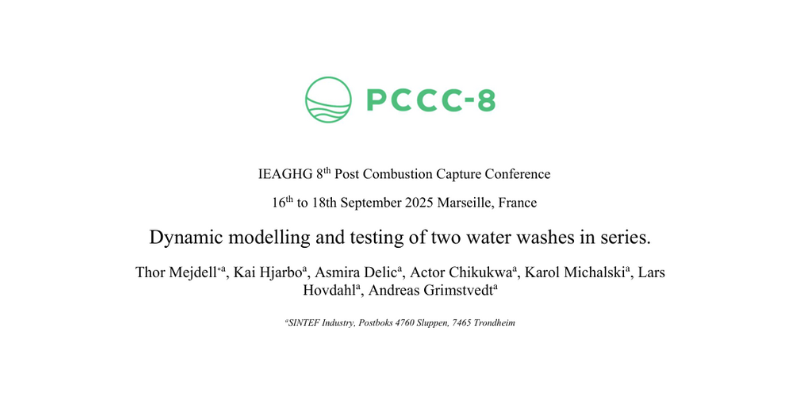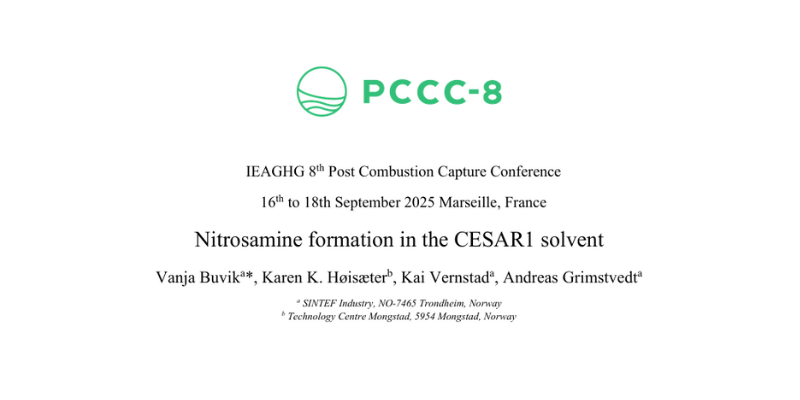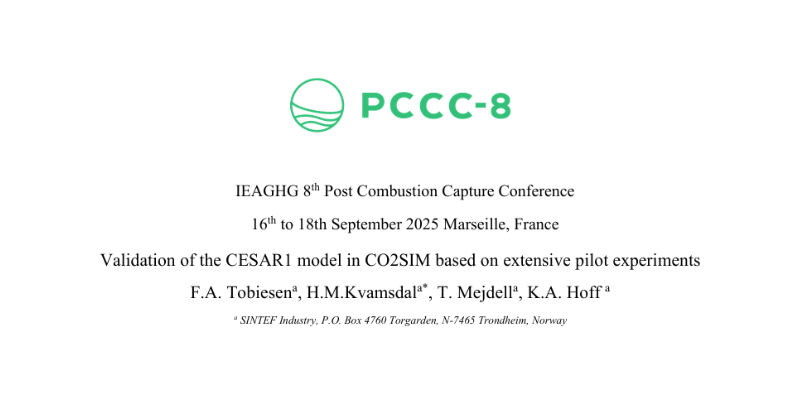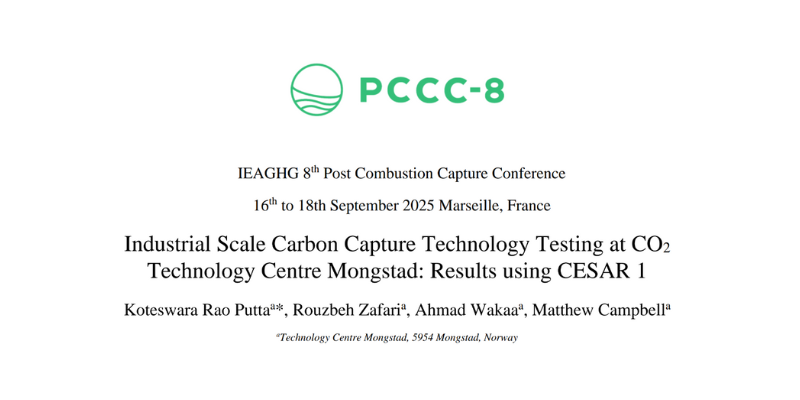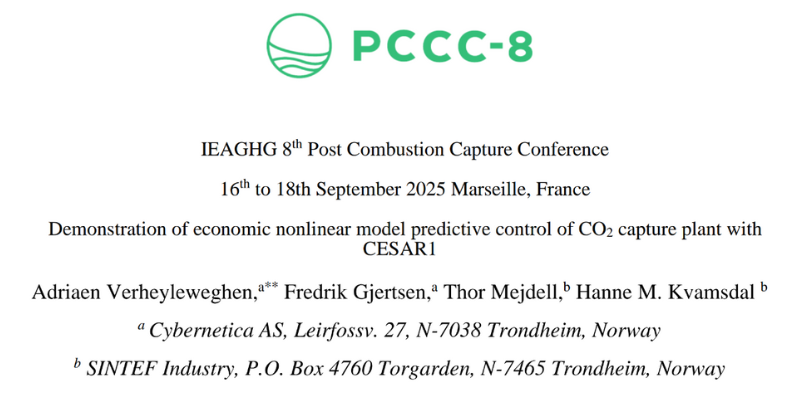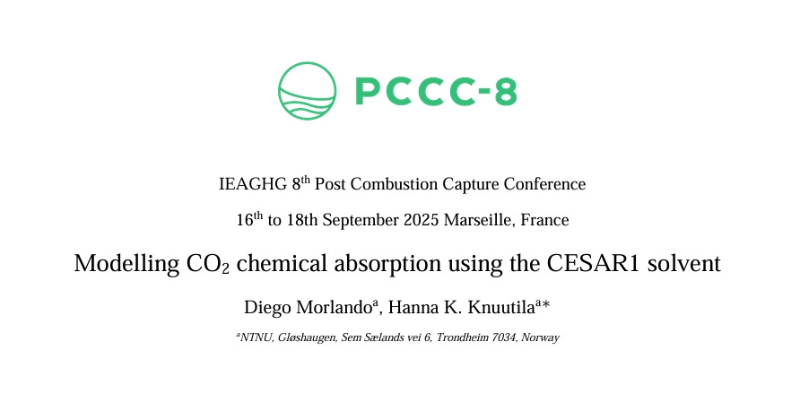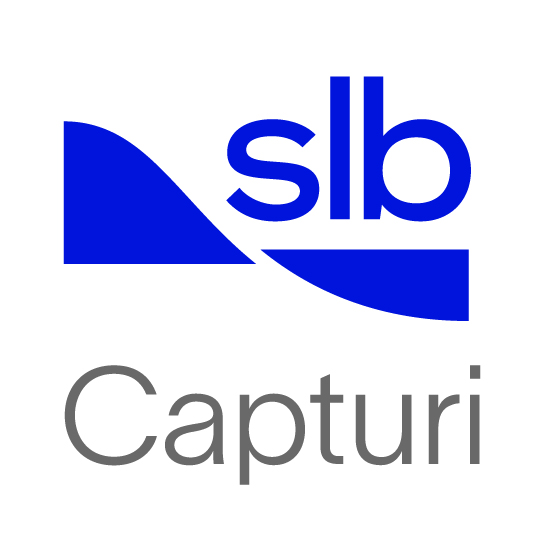Accelerating Carbon Capture Innovations
Accelerated deployment of integrated CCUS chains based on solvent capture technology
AURORA is a collaborative project funded by the European Union’s HORIZON EUROPE programme dedicated to optimising and qualifying the open, non-proprietary CESAR1 solvent-based carbon capture technology for commercial deployment.
Meet us at our next event
Latest News & Updates
Driving Carbon Capture Forward – AURORA’s 5th Newsletter Is Here!
The AURORA project is proud to share its fifth newsletter! Interested in C.C.U.S technologies? Read the latest news from the 🍃AURORA project (funded by the European Union\'s HORIZON EUROPE program) on the accelerated deployment of integrated CCUS chains based on solvent capture technology.🍃AURORA aims to optimise and qualify the open,…
AURORA Partners Present Groundbreaking Research on Public Acceptance of CCUS at UKCCSRC Conference
Sheffield, UK - AURORA project partners from the University of Cambridge made a significant contribution to the UK Carbon Capture and Storage Research Centre (UKCCSRC) Knowledge Exchange Conference in Sheffield, presenting pioneering research on public acceptance of carbon capture, utilization and storage (CCUS) technologies and green industrial clusters.Understanding Public Acceptance…
Fourth Stakeholder Forum for the AURORA Project
AURORA\'s fourth Stakeholder Forum (StF) was held on September, the 10th February 2025 (14-16 CET). Our StF serves to guide AURORA\'s developments and advise on next steps to drive market adoption of our capture technology.What would be your role?As a member of the AURORA Stakeholder Forum, you will: ✔️ Engage…
Presenting at World CCUS Conference 2025 in Bergen, Norway
We are proud to announce that Peipei Chen from the University of Cambridge (UCAM) successfully presented cutting-edge research on European CCUS clusters at the prestigious World Conference on Carbon Capture, Utilization and Storage (WCCUS) 2025, held from September 1-4 in Bergen, Norway.Event OverviewThe World CCUS Conference is a premier interdisciplinary…
🤝 AURORA Holds Its 5th Project Meeting in Bergen and Mongstad
On June 23–24, 2025, the AURORA consortium gathered for its 5th project meeting, bringing together partners from across Europe to review progress and plan next steps in accelerating carbon capture deployment. This two-day event took place in Norway, with the first day hosted at the renowned Technology Centre Mongstad (TCM)…
What’s New in AURORA? Discover Our Latest Highlights in Our 4th Newsletter!
The AURORA project is proud to share its fourth newsletter! Interested in C.C.U.S technologies? Read the latest news from the 🍃AURORA project (funded by the European Union\'s HORIZON EUROPE program) on the accelerated deployment of integrated CCUS chains based on solvent capture technology.🍃AURORA aims to optimise and qualify the open,…
International Women’s Day – Let’s celebrate our female researchers: interview with Hanna Katarina Knuutila!
The AURORA project is pleased to dedicate this article to our female researchers to promote their work and careers around the decarbonisation of CO2-intensive industries such as refining, cement, and materials recycling, as sectors where other alternatives towards climate neutrality do not exist yet. As part of the AURORA project,…
International Women’s Day – Let’s celebrate our female researchers: interview with Vanja Buvik!
The AURORA project is pleased to dedicate this article to our female researchers to promote their work and careers around the decarbonisation of CO2-intensive industries such as refining, cement, and materials recycling, as sectors where other alternatives towards climate neutrality do not exist yet. As part of the AURORA project,…
Don’t miss the 8th Post-Combustion Capture Conference | September 16th-18th 2025 in Marseille (France)
The AURORA consortium is pleased to announce its participation in the 8th Post-Combustion Capture Conference (PCCC-8), set to take place from September 16 to 18, 2025, in Marseille, France. Organized by the IEA Greenhouse Gas R&D Programme (IEAGHG), PCCC-8 is a key international forum dedicated to the latest advancements in…
Join us at the 13th Trondheim CCS Conference (TCCS-13) | June 16th-19th 2025 in Trondheim (Norway)
We are thrilled to announce that the AURORA project, coordinated by SINTEF, will actively participate in the upcoming 13th Trondheim CCS Conference (TCCS-13), scheduled from June 16 to 19, 2025, in Trondheim, Norway. AURORA\'s ContributionAURORA\'s consortium has submitted five abstracts, with four accepted, each highlighting significant advancements in carbon capture, utilization,…
Getting ready for our 3rd online Stakeholder Forum (StF)!
AURORA is preparing its third Stakeholder Forum (StF) to be held online on February, the 13th February 2025 (14-16 CET). Our StF serves to guide AURORA\'s developments and advise on next steps to drive market adoption of our capture technology.What would be your role?As a member of the AURORA Stakeholder…
AURORA 3rd General Assembly online
The AURORA project partners recently had their third General Assembly online, to assess progress and outline plans for the next phases of the project. To kick off 2025 on a strong foundation, the AURORA consortium gathered online to review the progress of Work Packages and outline their plans for the next…
Throwback on the GHGT-17 – Greenhouse Gas Control Technologies conference in Calgary, Canada
From October 20th to 24th, 2024, the AURORA project partners participated in the 17th International Conference on Greenhouse Gas Control Technologies (GHGT-17) in Calgary, Canada, where over 1,500 peers gathered to discuss the latest advancements in greenhouse gas control.Three partners from the AURORA project presented at the conference, and their…
Join us at the European Cement Decarbonisation Summit 2024 | Oct. 30th – 31st in Hamburg (Germany)
We are excited to announce that the AURORA project, coordinated by SINTEF, will be prominently featured at the upcoming European Cement Decarbonisation Summit 2024 on October 31st. Representing SINTEF, Hanne Kvamsdal will present the project’s groundbreaking findings and share valuable lessons learned throughout its development. This prestigious event, organised by…
SINTEF Launches 6-Month CESAR1 Pilot Campaign at Tiller CO2LAB
We are excited to announce that the six-month CESAR1 pilot campaign has officially begun at SINTEF’s Tiller CO2LAB. Starting in the last week of August, this comprehensive campaign will play a crucial role in advancing carbon capture technology. The goal is to conduct 115 tests on the CESAR1 solvent and…
Autumn Insights from the AURORA Project – Your Latest Newsletter is Here! 🍁
As the autumn leaves begin to fall, ushering in a fresh season of change, we invite you to explore the latest updates from the AURORA Carbon Capture Project. From March to September, our team has made groundbreaking strides in carbon capture technology, paving the way for a greener future. Highlights…
Boosting CCUS Innovation: AURORA Project Partners Convene for 3rd Project Meeting!
The AURORA project partners recently came together in Paris for their 3rd General Assembly meeting on September 3-4, 2024, to assess progress and outline plans for the next phases of the project. The meeting focused on advancing carbon capture, utilization, and storage (CCUS) technologies using solvent-based systems, with the goal…
AURORA Project Highlights Participation in GreenDealCO2 Final Workshop
On June 18, 2024, the AURORA project participated in the final workshop of the EU project GreenDealCO2, held at Haus der Technik e.V. in Essen, Germany, and online. This engaging networking event brought together stakeholders from various EU projects focused on sustainability and decarbonization.The workshop featured insightful presentations and discussions…
ESCAPE34-PSE24 European Symposium on Computer-Aided Process Engineering | Florence, June 2 to 6, 2024
Discover the groundbreaking advances in process systems engineering and CO2 capture technology from our project partners SINTEF and Cybernetica. Their collaborative paper on the optimal control of solvent-based CO2 capture plants will be presented at the ESCAPE34-PSE24 symposium, (European Symposium on Computer Aided Process Engineering and International Symposium on Process…
Throwback on the “Transition to the Zero-Carbon target” conference organised by HERACLES (AURORA project partner)
On 21 March, HERACLES, a partner in the AURORA project, was pleased to host its conference on \"Transition to Zero Carbon\" (see agenda below) in the auditorium of the Greek Technical Chamber, Magnesia Dpt. The event coincided with a visit by SINTEF and Aker Carbon Capture (ACC) teams to the…
Fresh Updates for a Greener Future: AURORA Project’s Second Newsletter (Oct 2023 – Mar 2024) Now Available!
The AURORA project is proud to announce the launch of its second newsletter! Interested in C.C.U.S technologies? Read the latest news from the 🍃AURORA project (funded by the European Union\'s HORIZON EUROPE program) on the accelerated deployment of integrated CCUS chains based on solvent capture technology.🍃AURORA aims to optimise and…
AURORA Project Featured on CEMBUREAU’s Map of Innovation Projects
We are thrilled to announce that the AURORA project, a pioneering initiative in carbon capture and utilization, has been added to CEMBUREAU\'s prestigious Map of Innovation Projects as of March 2024. This recognition underscores the significant strides AURORA is making in the field of industrial decarbonization.AURORA, funded under the European…
On-site flue gas characterization carried out by SINTEF at Motor Oil Refinery in Agioi Theodoroi, Corinthos, Greece
Motor Oil had the pleasure of welcoming its AURORA partners at the Refinery in Agioi Theodoroi, Corinthos, Greece, last week, 11th to 15th March 2024. The whole week was devoted to on-site measurements carried out by SINTEF experts, using specialised instruments for gas and particle analysis on the hydrogen production…
2nd LCA to CCUS and alternative fuels workshop | co-hosted by ACCSESS and ConsenCUS projects
On Thursday 12 March, the AURORA project, represented by Stuart Scott from the University of Cambridge, participated to the 2nd LCA to CCUS and alternative fuels workshop, co-hosted by sister projects ACCSESS and ConsenCUS. The workshop, moderated by Kristin Jordal and Adriana Reyes-Lúa from SINTEF Energy Research, and Dirk Koppert…
International Women’s Day – Let’s celebrate our female researchers: interview with Peipei Chen!
The AURORA project is pleased to dedicate this article to our female researchers to promote their work and careers around the decarbonisation of CO2-intensive industries such as refining, cement, and materials recycling, as sectors where other alternatives towards climate neutrality do not exist yet. As part of the AURORA project,…
International Women’s Day – Let’s celebrate our female researchers: interview with Hanne Kvamsdal!
The AURORA project is pleased to dedicate this article to our female researchers to promote their work and careers around the decarbonisation of CO2-intensive industries such as refining, cement, and materials recycling, as sectors where other alternatives towards climate neutrality do not exist yet. As part of the AURORA project,…
The methodology for full chain CCUS assessment and cluster development is established
The first deliverable of Work Package 5 on the Full chain CCUS assessment has been issued. This report results from continuous discussions and workshop between all partners during the first year. It is co-authored by TotalEnergies, SINTEF, UNIROMA1 and Cambridge University.Links between the different blocks of a full CCUS chainThis…
The methodology for assessment of the AURORA technology and qualification of the CESAR1 solvent is established
The final aim of the AURORA project is to qualify the CESAR1 solvent for commercial deployment and to establish this solvent and its associated absorption process as the new benchmark for CO2 capture. This requires that the performance of the solvent is known and that any risks in the deployment of…
Getting ready: Motor Oil and HERACLES set date for onsite flue gas characterization with SINTEF experts!
The Motor Oil refinery and the HERACLES cement plant in Greece are both preparing on site and have set dates in March 2024 for flue gas characterization with SINTEF experts. An in-depth analysis will be carried out respectively on the hydrogen production unit and the kiln stack.HERACLES cement plant, GreeceMotorOil…
AURORA 2nd General Assembly & Stakeholder Forum in Cambridge (UK)
What better way to celebrate the New Year than by gathering for our second Project and General Meeting on January 9 and 10 in Cambridge, UK!Our consortium began the day with an overview of progress and results in advancing carbon capture technology. Discussions focused on the following points: Improved models…
Our Publications
Research & Reports
Publication – Development of a Validated Rate-Based Model
Abstract In this work, we developed a new e-NRTL thermodynamic framework for CO2 absorption in aqueous mixtures of 2-amino-2-methyl-1-propanol (AMP) and piperazine (PZ) in Aspen Plus. The e-NRTL AMP/PZ/H2O/CO2 model was fitted on experimental data covering a range of AMP concentration from 12 to 48 mass % and PZ concentration…
Publication – Pilot-scale CO2 capture in a cement plant with CESAR1
Abstract Carbon capture from hard-to-abate industries is essential. This study investigates the effect of stripper pressure on the performance of amine-based CO2 capture from cement flue gas, using the CESAR1 solvent. Through a rigorous data filtering and binning methodology, experimental results were systematically categorized, enabling a precise evaluation of how…
New Publication: Aerosol Modeling in CO2 absorption using CESAR1
We are proud to announce that Hallvard F. Svendsen, Hanna K. Knuutila, Ardi Hartono, Maxime Francois and Diego Morlando at NTNU, together with external collaborators Peter Moser (RWE) and Georg Wiechers (RWE) have published a new article presenting results from the AURORA and SCOPE projects.The publication introduces a new class-based…
Conference abstract – Dynamic modelling and testing of two water washes in series.
Abstract An amine-based CO2 capture plant may cause harmful emissions to the atmosphere, and it is important to measure and control the emissions of amines and products resulting from their degradation during the process. The present work is a part of the SCOPE and AURORA projects and presents modelling and…
Conference abstract – PCCC8: Nitrosamine formation in the CESAR1 solvent
Abstract The CESAR1 solvent is a non-proprietary blend of 2-amino-2-methylpropanol (AMP) and piperazine (PZ), that has been extensively studied as a good candidate for post-combustion CO2 capture. It offers lower energy demand, more flexibility of operation and higher chemical stability than the earlier benchmark solvent, 30wt% ethanolamine (aq.) 1. The…
Conference abstract – PCCC8: Validation of the CESAR1 model in CO2SIM based on extensive pilot experiments
Abstract The CESAR1 model in the CO2SIM simulator has been updated based on new laboratory experiments covering a broader loading and temperature range compared to previous reported data in the literature. The updated model has been validated and successfully improved by extensive testing at the Tiller pilot plant, which operated…
Conference abstract – PCCC8: Industrial Scale Carbon Capture Technology Testing at CO2 Technology Centre Mongstad: Results using CESAR1
Abstract Global CO2 emission trends show an increase in the total CO2 emissions, i.e. 36.8 Billion tons in 2022 [1], 37.4 Billion tons in 2023 [2] and in 2024 CO2 emissions are expected to be above 40 Billion tons [3]. Though clean energy deployment is increasing, it’s not yet at…
Conference abstract – PCCC8: Demonstration of economic nonlinear model predictive control of CO2 capture plant with CESAR1
Abstract A nonlinear model predictive control (NMPC) strategy is successfully demonstrated for the Tiller CO2Lab (SINTEF AS) aminebased post-combustion CO2 capture pilot using the CESAR1 solvent. The dynamic pilot plant model is validated against experimental results with good agreement. Building on previous experience with testing this type of controller, a…
Thermodynamic Properties of CO₂ Absorption in CESAR1 — Essential Data for Better Process Modelling
We are proud to announce a new scientific publication from the AURORA project, authored by Diego Morlando, Ardi Hartono and Hanna K. Knuutila, published in Carbon Capture Science & Technology. This important work provides extensive experimental data on the thermodynamic properties of CESAR1, a key solvent blend for industrial carbon…
Conference abstract – PCCC8: Modelling CO2 chemical absorption using the CESAR1 solvent
Abstract Reducing carbon dioxide (CO2) emissions is a significant global challenge in combating climate change. Chemical absorption using aqueous amine solution is the most mature technology for post-combustion carbon capture [1]. An aqueous blend of 3 M 2-amino-2-methyl-1-propanol (AMP) + 1.5 M piperazine (PZ), also known as CESAR1, is considered…
SEE ALL OUR PARTNERS
Meet the AURORA Consortium
The AURORA project is powered by a diverse consortium of 12 partners from industry, research, and academia. Our team is dedicated to advancing carbon capture technology through collaborative efforts and significant industrial involvement.


